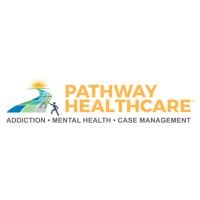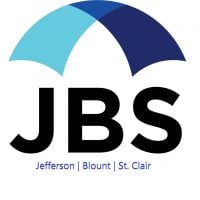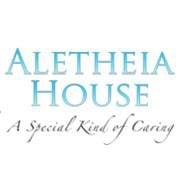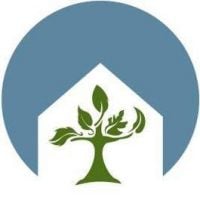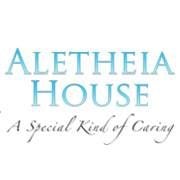Olivias House
Drug Rehab Center in Birmingham, Alabama
Olivia’s House is a residential addiction treatment facility in Birmingham, AL that offers tailored programs, evidence-based therapy, holistic therapies, and specialized services to meet the unique needs of each individual with substance use and co-occurring disorders.
About This Alabama Facility
Olivia’s House is a residential addiction treatment facility located in Birmingham, Alabama that focuses on providing clients with a safe and comfortable place to heal. They are equipped with the expertise and the resources to provide tailored treatment plans that meet the unique needs of each individual. The services provided at Olivia’s House include evidence-based therapy, mental health counseling, peer support services, 12-step facilitation, and an array of holistic therapies such as yoga and meditation. In addition to individual therapy, group therapy and family therapy are also offered to further support and strengthen the healing process. In addition, clients receive case management services and supportive services designed to meet any special needs that each may have.
Olivia’s House is accredited by the Commission on Accreditation of Rehabilitation Facilities and licensed by the State of Alabama Department of Mental Health. The facility offers a variety of programs, including residential treatment, intensive outpatient treatment, sober living, and continuing care. They also provide services to individuals with co-occurring disorders and specialize in treating women with substance use disorder in a woman only facility.
Olivia’s House provides access to primary care services, nutrition services, and specialized relapse prevention and recovery support. They also have a trained clinical team that provide medication-assisted treatment, such as methadone and buprenorphine, when appropriate. Additionally, they have a specialized Transitional Living Program to help individuals learn how to live a lifestyle of recovery in a safe, monitored environment.
Genders
Ages
Modality
Additional
Conditions and Issues Treated
A drug abuser needs help because if no one helps them, they will not leave their vicious circle.
People who abuse drugs are likely to suffer from an addiction, which can cause serious health problems. It can also cause quarrels with people around them. It is common for drug abusers to have difficulty holding down jobs or relationships, but sometimes people around them can be quite tolerant. There are cases where the families of the drug abusers do not want to see them get any help, and the subject becomes controversial.
When it comes to helping drug abusers get sober, there are many options to choose from. It is essential to state that there is no “correct” way of doing things. People are different, and they need different types of help to get over their addiction.
Opioid addiction treatment should be done in a medically supervised drug rehab. Opioid addiction treatment will include detoxification and drug rehab counseling to help both the user and their loved ones learn how to live a successful sober lifestyle. Methadone, buprenorphine, and naltrexone are three medications that can help treat opioid addiction. Individual drug rehab counseling sessions can be helpful to discuss any questions or concerns with the drug treatment program.
When addiction and psychiatric issues co-occur, the addict’s recovery is more successful when both conditions are treated. A dual diagnosis refers to a condition in which the patient is diagnosed with two health issues: addiction and bipolar disorder.
Usually, dual diagnosis sufferers are prescribed a combination of treatments for each condition. The most common therapies are psychotherapy, behavioral therapy, spiritual counseling, 12-step programs, and medication management.
Psychiatric conditions are an obstacle to recovery because they can create roadblocks to a healthy lifestyle. Drugs and alcohol may be used as a means of self-medication, which can have dangerous consequences. Over time, addicts build up a tolerance and suffer withdrawal symptoms when drug use is stopped.
With the proper treatment, dual diagnosis sufferers can overcome their conditions and achieve lasting sobriety.
Levels of Care Offered at Olivias House
This center offers a variety of custom treatment tailored to individual recovery. Currently available are Detox, Drug Rehab, Dual-Diagnosis, Inpatient, Residential, Sober-Living / Half-Way, with additional therapies available as listed below.
Detoxification is the first step in drug addiction treatment. A controlled environment where symptoms can be managed with medication and close observation is provided by drug detoxification. Detoxification is an essential step in the recovery process, but it is also one of the most dangerous. Due to the potential danger, it’s critical to understand what detoxification is and how to complete it safely.
A detox program helps the person physically withdraw from drugs and helps them track their progress. So, suppose the person isn’t ready for sobriety (or relapses). In that case, the treatment professionals can catch it early and help re-orient them towards recovery.
Inpatient treatment is an option that provides addicts with a supportive environment in which they can stop using. This type of intensive care and supervision is appropriate for those who were unable to quit on their own or need more structure than they could get from outpatient treatment, such as the addict most in need of this level of care.
The goal of inpatient rehab is for the addict to stay focused on sobriety and remain free of mood altering substances. Inpatient treatment programs usually offer the following: detox, therapy groups, one-on-one counseling, medication management and aftercare planning.
Sober Living Homes are used in drug rehab to help former addicts maintain sobriety. The staff provides the residents with a safe and supportive living environment to learn how to live a sober life. The staff members also provide the residents with resources to equip themselves better to live a sober life. They also provide them with opportunities for exercise, many of which encourage learning coping mechanisms that will be helpful later on.
Residential treatment programs are those that offer housing and meals in addition to substance abuse treatment. Rehab facilities that offer residential treatment allow patients to focus solely on recovery, in an environment totally separate from their lives. Some rehab centers specialize in short-term residential treatment (a few days to a week or two), while others solely provide treatment on a long-term basis (several weeks to months). Some offer both, and tailor treatment to the patient’s individual requirements.
Therapies & Programs
Trauma therapy helps people dealing with addiction by allowing them to confront the traumas of their past and move past them. It is important to note that trauma therapy should not be confused with PTSD (post-traumatic stress disorder) Rather, it is used to treat the effects of trauma, which are often at the root of addiction.
Alcohol and Drug Abuse Treatment Centers Associated Centers
Discover treatment facilities under the same provider.
Learn More About Alcohol and Drug Abuse Treatment Centers Centers
Additional Details
Specifics, location, and helpful extra information.
Birmingham, Alabama 35206 Phone Number(205) 833-5708 Meta DetailsUpdated November 25, 2023
Staff Verified
Patient Reviews
There are no reviews yet. Be the first one to write one.
Birmingham, Alabama Addiction Information
Opioids, such as heroin, fentanyl, and prescription opioids are related to more than half of all drug-related overdoses in Alabama. Alcohol is the most frequently used substance in Alabama; 85,000 Alabamians use cocaine every single year. In Alabama, there are four times as many vehicle crashes involving alcohol as there are normal vehicle crashes.
Birmingham, Alabama has a moderate level of drug addiction and abuse problems. 15.8% of people in Birmingham, Alabama abuse drugs, while 9.8% of people in Birmingham, Alabama are addicted to drugs. In 2015, there were 648 drug-related arrests in Birmingham. The most common age group for drug-related arrests is 21-25 years old. Most rehab facilities will offer a variety of therapies and treatments to help patients overcome their addictions.
Treatment in Nearby Cities
- Rogersville, AL (93.2 mi.)
- Valhermoso Springs, AL (64.8 mi.)
- Eufaula, AL (147.7 mi.)
- Sylvania, AL (86.4 mi.)
- Butler, AL (134.2 mi.)
Centers near Olivias House
The facility name, logo and brand are the property and registered trademarks of Olivias House, and are being used for identification and informational purposes only. Use of these names, logos and brands shall not imply endorsement. RehabNow.org is not affiliated with or sponsored by Olivias House.

